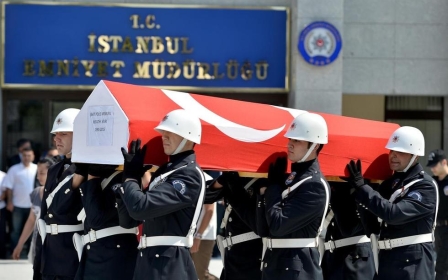2 Turkish police shot dead in another attack blamed on PKK

Two Turkish police were shot dead on Friday after gunmen attacked police headquarters in the southern region of Adana. The incident was blamed on the Kurdish Worker's Party (PKK) and comes on the back of several similar incidents in recent days.
According to the official Anatolia news agency, the gunmen fired on police headquarters in the city of Pozanti. Two police officers and two alleged PKK assailants were killed in the ensuing clashes, Anatolia said, quoting top local officials.
The police are now looking for two remaining attackers who were apparently were able to flee the scene.
The attack is the latest to be blamed on the outlawed PKK which is engaged in an escalating cycle of violence with the security forces.
The military has been carrying out daily air raids on the group's camps in northern Iraq for the last week. According to reports in the Turkish daily Hurriyet - which have not been confirmed by the Turkish authorities or the PKK - hundreds of PKK fighters have been killed.
While the group agreed to a ceasefire in 2013 this broke down last week. According to an AFP tally, at least 13 members of the security forces have been killed in attacks blamed on the PKK since the current crisis erupted last week. The group has so far taken responsibility for some, but not all, of the killings. It is also believed to be behind two large-scale explosions aimed at sabotaging oil and gas pipelines.
During the PKK's more-than-three-decade-long insurgency for greater rights and powers for Turkey's Kurdish minority, more than 40,000 people have been killed, and hundreds of Kurdish villages raised to the ground.
Stay informed with MEE's newsletters
Sign up to get the latest alerts, insights and analysis, starting with Turkey Unpacked
Middle East Eye delivers independent and unrivalled coverage and analysis of the Middle East, North Africa and beyond. To learn more about republishing this content and the associated fees, please fill out this form. More about MEE can be found here.





